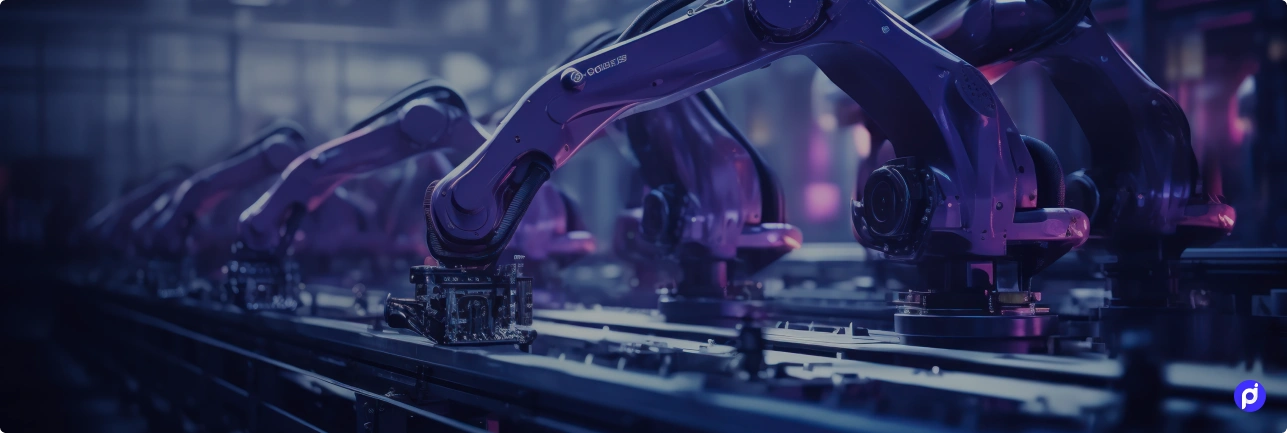Traditional manufacturers had a tough time streamlining and improving the quality control process in factories and production lines. But modern manufacturers are clever. Do you know why? The reason is that they use manufacturing inspection apps. Yes, if you are new to this term, you might have a doubt, but these apps ensure your products meet stringent specifications, reducing defects, minimizing your rework, and fostering customer satisfaction. A Manufacturing Application Development Company possesses the title in making these apps. Let’s study how these apps strengthen quality control.
Ways Manufacturing Inspection Apps Enhance Quality Control:
1. Increasing Efficiency
Inspection apps allow technicians to access checklists, record data, and capture photos and videos directly on their smartphones or tablets. This eliminates time-consuming paperwork and data entry, allowing inspectors to focus on what matters most.
2. Improving Data Accuracy
Manual data entry is the root cause of errors, and this can be corrected with the expertise of a Manufacturing Software Development Company. They offer inspection apps to eliminate this risk by offering pre-defined checklists, dropdown menus, and voice-to-text functionality. Additionally, real-time data capture ensures all inspection information is accurate and up to date.
3. Fostering Collaboration
When collaboration is missing in your entity, you will not succeed. Keeping this in mind a Manufacturing Application Development Company has created manufacturing inspection apps. These apps ensure collaboration between quality control teams, production personnel, and management. Inspectors can share inspection reports, photos, and non-conformance (NC) reports in real-time, enabling faster decision-making and corrective actions.
4. Flawless Reporting
According to traditional manufacturing process managers had to wait for reports to be compiled and printed. For instance, if there is a breakdown of machinery, supervisors write reports in pen and paper and then it is sent to the managers. Such a process took time and there were major hassles involved. The presence of apps has changed this process. Manufacturing inspection apps generate comprehensive reports with proper data, providing valuable insights into quality trends and potential areas for improvement. In this way you can control the quality of your manufactured products. For instance, if there is a defect in the manufacturing process, you get reports immediately.
5. Offline Functionality
When you are operating in areas where there is no internet connectivity, you should not forget about a manufacturing inspection app. Many a times Manufacturing Application Development Company integrates offline functionality in manufacturing inspection apps, allowing inspectors to capture data and complete inspections even in areas with limited connectivity. The data then syncs automatically when a connection is re-established. Such offline functionality facilitates quality control in the manufacturing process by helping departmental staff gather data and transfer it to their upper hierarchy.
What Can We Conclude?
Manufacturing inspection apps strengthens quality control by improving efficiency and data accuracy. They enable collaboration between teams and generate real-time reports for faster decision-making. These apps even function offline, allowing data collection in any environment. However, you should not forget the skill of a Manufacturing Application Development Company because they play a huge role in digitizing your quality control process.
The FAQ’s:
FAQ 1: What are manufacturing inspection apps?
Manufacturing inspection apps are digital tools used to streamline and improve the quality control process in factories and production lines. These apps allow inspectors to access checklists, record data, and capture photos and videos directly on their devices.
FAQ 2: How do manufacturing inspection apps improve efficiency?
Manufacturing inspection apps eliminate time-consuming paperwork and data entry by allowing inspectors to record data electronically. This frees inspectors to focus on conducting inspections and ensures data is captured accurately.
FAQ 3: How do manufacturing inspection apps improve data accuracy?
Manufacturing inspection apps can improve data accuracy by providing features like pre-defined checklists, dropdown menus, and voice-to-text functionality. These features help to eliminate errors caused by manual data entry.
FAQ 4: How do manufacturing inspection apps foster collaboration?
Manufacturing inspection apps allow inspectors to share inspection reports, photos, and non-conformance reports in real-time. This enables faster communication and collaboration between quality control teams, production personnel, and management.
FAQ 5: Do manufacturing inspection apps work offline?
Many manufacturing inspection apps offer offline functionality. This allows inspectors to capture data and complete inspections even in areas with limited connectivity. The data is then automatically synced when a connection is re-established.








